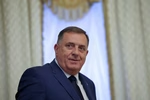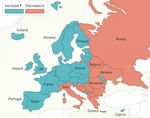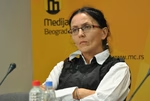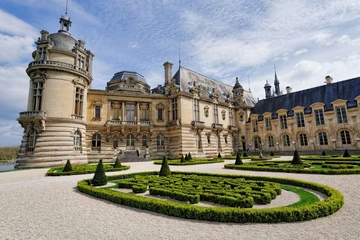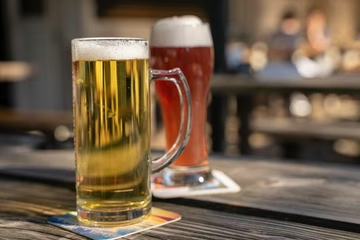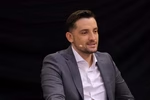Menachem Z. Rosensaft in Srebrenica: We cannot change the past, but we must do all we can to change the future and reject antisemitism, islamophobia and hatred
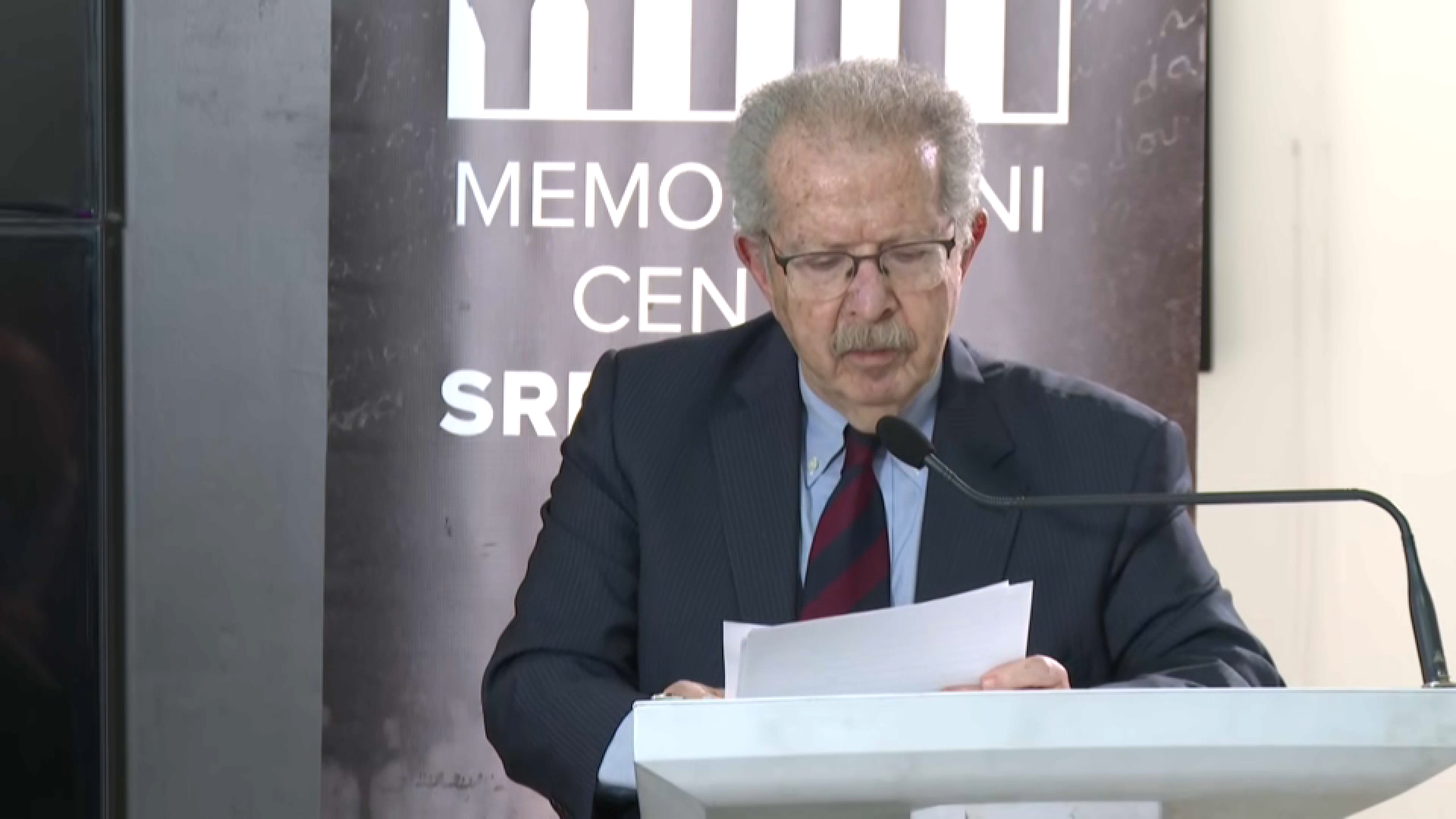
Speaking in Srebrenica on Saturday, Holocaust Remembrance Day, professor Menachem Z. Rosensaft, president of the World Federation of Bergen-Belsen Associations, said that the evil that was done to genocide victims must be remembered, but that the "rays of light, kindness, that broke through the darkness of that evil" must also not be forgotten.
"Today, we remember. Today, we mourn. Standing here in Potočari, we remember, we mourn the millions of Jewish men, women, and children who were systematically murdered by the German SS and their multinational accomplices at Auschwitz-Birkenau, Treblinka, Majdanek, Bergen-Belsen, Buchenwald, and all the other places of horror. We remember the Serbs, Jews, and Roma who were slaughtered by the Ustaše at Jasenovac, the 11,343 Jews from Bulgarian-occupied Thrace, Macedonia, and the formerly Serbian district of Pirot who were deported to their death by Bulgarian police and military units in the winter of 1943, and all the other innocent victims of the Holocaust. Standing here today in Potočari, we also mourn, we also remember the thousands of Bosniak men and boys – the Bosnian Muslim men and boys – who were murdered by Bosnian Serb chetniks in the Srebrenica genocide in July of 1995. We remember – we must never forget – all the Bosniak women and girls who were raped and violated here, and the women, children, and elderly who were forcibly deported from here as part of that genocide", Rosensaft said.
He mentioned some of the religious leaders and Muslims who stood up for the Jews during WWII. He spoke about a 1940 article published by Dervis Korkut, the chief librarian of the National Museum of Bosnia, entitled “Anti-Semitism is foreign to the Muslims of Bosnia and Herzegovina” in which he advocated tolerance towards Bosnian Jews.
"Korkut subsequently not only rescued the historic Sarajevo Haggadah from certain destruction by the Nazis, but he and his wife Servet hid a Jewish girl, Dorkica Papo, also known as Mira, in their home, thereby saving her life. More than five decades later, when Korkut’s daughter Lamija and her family fled from the ethnic carnage in Kosovo to Skopje in what is now North Macedonia, Mira Papo’s son Davor was among those who enabled them to settle in Israel", he said.
He also mentioned the example of two other Bosnian Muslims, Mustafa and Zejneb Hardaga, who risked their lives by sheltering their Jewish friends and neighbors, Rifka and Josef Kabiljo, and their two children in the Hardagas’ Sarajevo home. Zejneba Hardaga went on to save other Bosnian Jews from being rounded up by the Gestapo and the Ustasha, resulting in her and Mustafa being recognized as a Righteous Among the Nations by Yad Vashem, Israel’s Holocaust remembrance authority, as were Dervis and Servet Korkut.
"And here again, goodness was met with goodness. In 1994, at the height of the Bosnian Serb siege of Sarajevo, after Mustafa had died, Rifka Kabiljo arranged for Zejneba and her family to be taken out of that city and brought to safety in Israel", he said.
"Today is not a time and this commemoration is not the place for politics or to express our respective views or opinions on present-day global developments. Today is a time and this commemoration is the place for remembrance, for not allowing the ghosts of our past to fade away from us. And yet, today is also a time and this commemoration is also the place for us to jointly commit ourselves to doing everything in our power to prevent the horrors we remember here today from being repeated, and to do everything in our power to prevent or at least ease the suffering of the innocent," Rosensaft stressed.
He also spoke about the ongoing conflict in the Middle East.
"And so let me state clearly and unambiguously here today that we must condemn and repudiate the savagery perpetrated by Hamas against Jewish men, women, and children on October 7 on the Israeli-Gaza border, the rapes and violations of Jewish women and girls, and the violent kidnapping of more than 200 hostages into Gaza, over 100 of whom remain there in horrific captivity today, more than three and a half months later. And at the same time, let me state equally clearly and equally unambiguously here today that we must not, we cannot be indifferent to the deaths and displacements endured by Palestinian civilians in Gaza over the course of these same more than three and a half months. Anyone with a heart, anyone with a soul must have deep compassion and empathy for the suffering of Palestinian civilian men, women, and children desperately in need of humanitarian aid. Anyone with a heart, anyone with a soul cannot fail to shed tears at the sight of dead Palestinian infants in shrouds, the victims of a war for which they bore no responsibility whatsoever. Simply put, in order for us to move toward one another rather than further and further away from one another, we must, in the words of a man attending a meeting of Standing Together, a grassroots organization of Israeli Jews and Arabs that promotes tolerance and coexistence, “be able to feel pain for the other side"," he said.
Rosensaft stressed that, "while words in and of themselves do not kill, hateful words can all too easily result in violence, in killings, in atrocities, and, yes, in genocide."
"An essential element in the perpetration of the Holocaust, in the perpetration of the Srebrenica genocide, indeed, in the perpetration of all genocides, was the dehumanization of the other. When any one group of human beings disparages another group by depicting them as inferior to themselves, as animals or as vermin, the process of dehumanization, of demonization has begun. It is up to us, to each one of us, to insist that the other, even our perceived political or national adversary, is a human being created and existing in a divine image. He said that it must be remembered that words alone do not kill, “but hatred expressed in words can all too easily result in violence, murders, crimes and, yes, genocide”, he explained.
"While we here today cannot change the past, we can and we must do all in our collective power to change the future, to prevent further destruction and violence, and to reject all manifestations of antisemitism, of Islamophobia, of bigotry, of xenophobia, and of hatred. And we must do so together, as Muslims, as Jews, as Christians, as human beings, all of us created by God, by Allah, by Adonai, in the image of God, of Allah, of Adonai", he concluded.
To mark International Holocaust Remembrance Day, an event was organised at the Srebrenica Memorial Center where the Muslim-Jewish Peace Initiative was presented with the goal to promote mutual understanding and dialogue between the Jewish and Muslim communities. The initiative was signed by Rosensaft, as well as the head of BiH’s Islamic Community Husein Kavazovic.
Kakvo je tvoje mišljenje o ovome?
Učestvuj u diskusiji ili pročitaj komentare





 Srbija
Srbija
 Hrvatska
Hrvatska
 Slovenija
Slovenija














